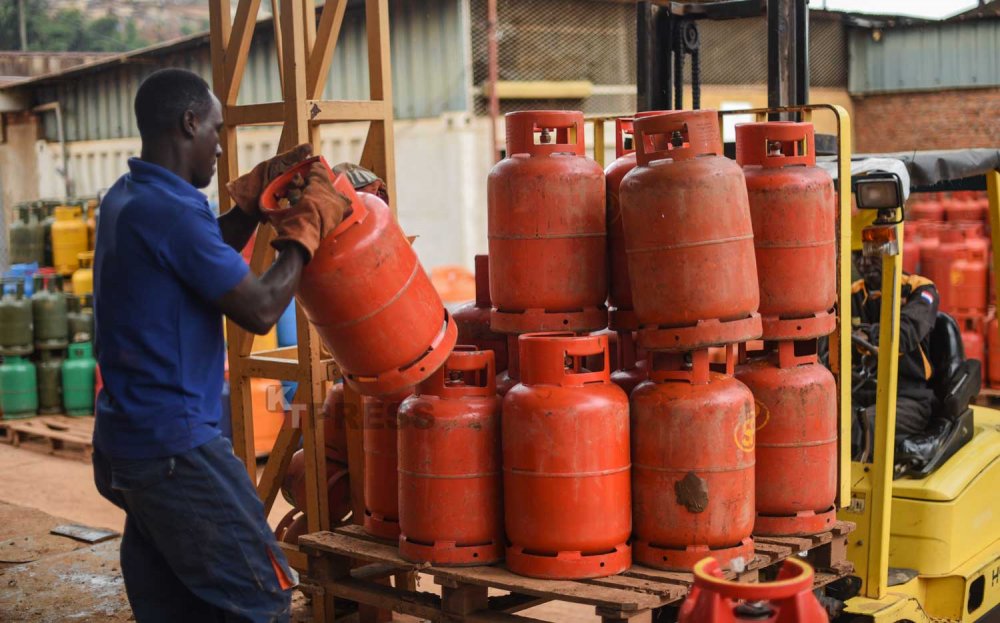Senators have expressed worry that Rwanda’s reliance on foreign suppliers for kitchen appliances is unsustainable. They called for assistance to increase local producers’ ability to lessen their reliance on imports.
The Senate’s Committee on Economic Development and Finance, which was supervising government initiatives to expand citizens’ access to clean cooking technologies, heard discussion of the matter on Wednesday, June 4.
Members of the Energy Private Developers (EPD), an umbrella organization of private businesses in Rwanda’s energy industry, senators, and representatives from the Development Bank of Rwanda (BRD) attended the meeting.
According to EPD authorities, because of a lack of domestic production capacity, all cook stoves that run on gas or electricity are now imported. Nonetheless, stoves that burn firewood or charcoal can be produced by the private sector.
According to Monica Keza, Country Director of DelAgua, a company that develops carbon projects in areas like clean cookstoves, the company offers tier 3 cookstoves, which are 43% efficient and can cut household firewood consumption by up to 71%. According to her, they import these stoves because the ones made locally don’t live up to their standards.
“The stoves made locally are tier 2 and not the best, so we can’t purchase them,” Keza stated.
Among the reasons she gave for not procuring the product locally, she also mentioned a comparatively greater volume.
“We buy 200,000 cookstoves a month, which is more than local producers can supply. We import them from Nairobi as a result,” she stated.
She did, however, add that local companies might become competitive suppliers if they were given sufficient funding and enhanced their manufacturing capacities.
Although tier 2 and tier 3 stoves are the market leaders, Serge Wilson Muhizi, CEO of EPD, pointed out that tier 2 models have been phased out because of their poor firewood or charcoal conservation.
He stated, “We are now only allowed to sell tier 3 cook stoves, which use firewood or pellets.”
According to Senator Marie Rose Mureshyankwano, the nation shouldn’t import stoves that burn firewood or charcoal.
She likened the situation to Rwanda’s previous dependence on imported soybean, wheat, and maize seeds until it established its own production capacity.
She advocated for students to be trained at Integrated Polytechnic Regional Centers (IPRCs) to encourage local production and cautioned that importing cookstoves could lead to increased prices.
She urged EPD and BRD to promote such projects, particularly to fulfill the huge demand from organizations like DelAgua, saying that doing so might lower the cost of stoves and create jobs for Rwandans.
By increasing domestic manufacturing, the nation might progressively cut back on stove imports, according to Fulgence Nsengiyumva, chairperson of the Senate’s Committee on Economic Development and Finance.
Although many local businesses first built tier 2 stoves, several have subsequently moved to tier 3 thanks to expert training, according to Jean Bosco Nsengiyumva, Managing Director of Green Hanga Ltd.
According to him, his company produces cookstoves based on demand, with an estimated daily production capacity of over 500, or 15,000 cookstoves per month.
According to him, local businesses that can now produce tier 3 stoves are receptive to consumer input for bettering their products.
He expressed worry, too, that the certification procedure is taking too long—four to six months—and that this is impeding the creation of new products.
In order to encourage quicker innovation, he proposed cutting this down to one month.
Local producers have made substantial progress through capacity-building under a project carried out by the government and its partners, according to Philbert Dusenge, Coordinator of the Energy Access and Quality Improvement Clean Cooking Project at BRD.
He noted that the production of tier 2 stoves was formally phased out in December 2023 and said, “This helped them move from very low-efficiency tier 2 stoves to more efficient tier 3 models.”
He came to the conclusion that “this shows there is hope that even the remaining imports can be eliminated eventually.”
In order to entice private investment in cleaner technologies, EPD suggested carrying out a study to evaluate the viability of manufacturing tier 4 and tier 5 cook stoves, which are those that are powered by gas and electricity.
In Rwanda, firewood is still the primary cooking fuel used in 75% of households. The National Institute of Statistics of Rwanda (NISR) released the Seventh Integrated Household Living Conditions Survey (EICV 7) on April 16 and found that only 5.4% of households utilize gas, while 18.8% of families use charcoal.
Just 6% of households in rural areas use charcoal, compared to 51% of those in urban areas. The fact that only 1% of homes in rural areas utilize gas, compared to 17% of households in urban areas, highlights the persistent inequalities in access to clean cooking energy.
